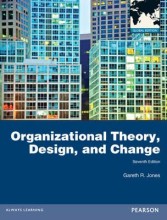Research Skils - Mandatory Papers - Sutton & Staw (1995)
3 important questions on Research Skils - Mandatory Papers - Sutton & Staw (1995)
(Parts of an article that are not theory) References are not theory
example: Rather than presenting more detailed and compelling arguments, authors may list the names of prevailing theories or schools of thought, without even providing an explanation of why the theory or approach leads to a new or unanswered theoretical question
(Parts of an article that are not theory) Data are not theory
Kaplan (1964) asserted that theory and data each play a distinct role in behavioral science research: Data describe which empirical patterns were observed and theory explains why empirical patterns were observed or are expected to be observed.
(Parts of an article that are not theory) List of variables or constructs are not theory
The key issue is why a particular set of variables are expected to be strong predictors
The question on the page originate from the summary of the following study material:
- A unique study and practice tool
- Never study anything twice again
- Get the grades you hope for
- 100% sure, 100% understanding






























